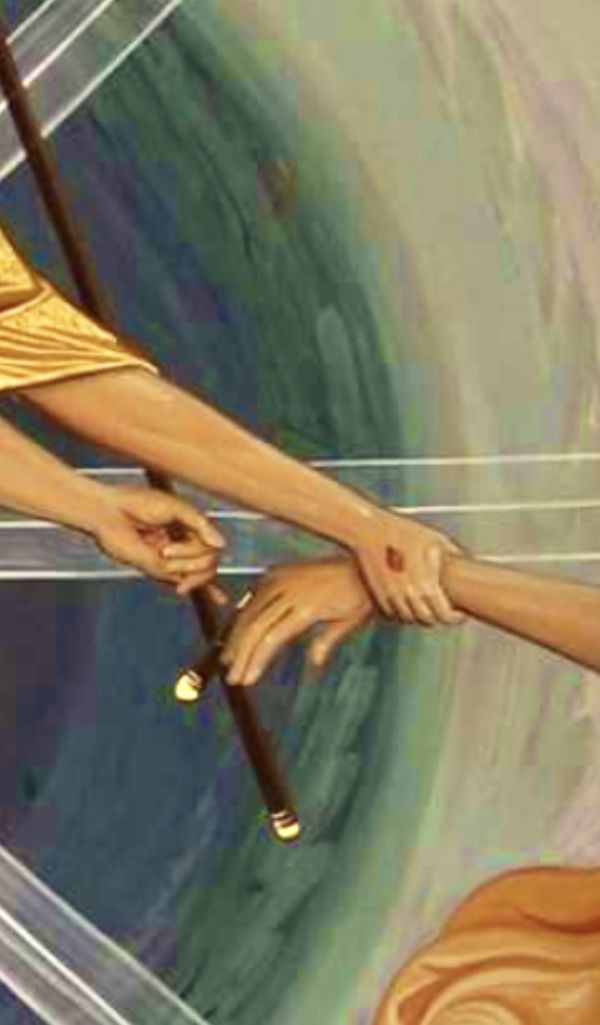(Mt 5:20-26)
«I tell you in fact that unless your righteousness will abound more [that] of the scribes and pharisees, you will not enter the kingdom of heaven»
In the churches of Galilee and Syria there were different and conflicting opinions about the Law of Moses: for some an absolute to be fulfilled even in detail, for others now a meaningless frill (v.22).
The disputants went so far as to insult, to ridicule the opposing party.
[But as the Tao Tê Ching (xxx) says: «Where the militias are stationed, thorns and brambles are born». Master Wang Pi comments: «He who promotes himself causes unrest, because he strives to affirm his merits»].
Mt helps all community brothers and sisters to understand the content of the ancient Scriptures and grasp the attitude of "continuity and cut" given by the Lord: «You have heard that [...] Now I say to you» (vv.21-22).
The ‘arrow’ of the ancient codes was shot in the right direction, but only understanding its range in the spirit of concordance sustains trajectory to the point of providing the energy needed to hit the “target”.
The ideal of ancient religiosity was to present oneself pure before God, and in this sense the Scribes official theologians of the Sanhedrin emphasised the value of the rules that they believed were nestled in the ‘prison of the lettering’ of the First Testament.
The Sadducees - the priestly class - focused on the sacrificial observances of the Torah alone. The Pharisees, leaders of popular religiosity, emphasised the respect for all traditional customs.
The teaching of professionals of the sacred produced in the people a sense of legalistic oppression that obscured the spirit of the Word of God and of Tradition itself.
Jesus brings out the goal: the greater Justice of Love.
The splendor, beauty and richness of the Glory of the living God is not produced in observing, but in the ability to manifest Him Present.
Right standing before the Father becomes - in Jesus' proposal - the ‘right position’ before one's own history and that of one’s neighbor.
First «debt» is therefore the global understanding: here the Eternal is revealed.
Justice is not the product of the accumulation of righteous deeds, in view of merit: this would manifest narrowness, detachment and arrogance (a type of man of unquestioning thought).
The new Justice chases complicity with evil up to the secret roots of the heart and ideas. But not to accentuate the sense of guilt, nor to make us pursues external dreams.
Observance that does not abide in friendship, in tolerance even of oneself, in Christ who orients, would arise from an ambiguous relationship with the norm and doctrines.
We can overlook the childish need for approval.
The Life of God transpires in a world not of sterilised or one-sided pure and phlegmatic, but in a conviviality of differences that resembles Him.
To internalize and live the message:
Where do you find the emotional nourishment you need?
What do you think of exclusive groups and their idea of the ultimate court?
[Friday 1st wk. in Lent, March 14, 2025]


